



Featured image: 98.235.73.27, 2016-07-10
Nye Thompson is a London-based artist whose work explores the interface between physical and virtual domains. Her recent artwork Backdoored involves the collection and online archiving of images taken via unsecured surveillance cameras worldwide. Backdoored was featured at Internet Yami-Ichi at Tate Modern in May this year. Backdoored.io, curated by Kosha Hussain, followed as a solo show at Bank Gallery, London in August. Artist Millicent Hawk interviews Nye on the technology, aesthetics and universal conditions that make this work both compelling and uneasy at once.
Millicent Hawk: Backdoored is transparent in its approach – the website tagline reads, ‘Intrusion | Surveillance | Exposure’. And whilst there have been a few (mostly misinformed) concerns aired publicly about the invasive nature to the work since the first solo exhibition of it this year, you’re not actually a hacker and these images existed already before – can you explain how these images are taken and the issues they raise.
Nye Thompson: To me, Backdoored highlights the technological erosion of our privacy and through this work I’m exploring the factors that make us active contributors to this process. A ‘backdoor’ is slang for a feature or defect in a device that allows the bypassing of normal authentication. These images are generated by softbots belonging to specialist search engines which trawl connected devices (the Internet of Things) for security testing. The bots take pictures when they discover an unsecured camera and save them into their search results. In most cases the owner of the camera has no idea this is happening.
For some time now I’ve been interested in the Internet of Things and its potential impact on our personal privacy and liberties, but how do you create artistic discourse around something so abstractly technical? So when I first discovered these images they were revelatory for me because they provided me with a ready-made visual language to talk about these issues. There is also a performative thread running through the project: every day I get sent new images, and I attempt to unpick meaning from their apparent randomness by developing taxonomies and applying them to each one.
MH: So how does one avoid being, ahem, Backdoored ?
NT: If you have an IP surveillance camera in your home then you are basically broadcasting your domestic life onto the internet. This data needs to be protected by setting a unique, secure passcode on the camera. The images in Backdoored come from cameras that don’t have this. Part of the problem is a toxic combination of low public awareness of privacy risks combined with profit-hungry manufacturers and lack of regulation. But these Backdoored cameras are just harbingers of what is to come – a future surrounded by smart objects all collecting and sharing data about us.
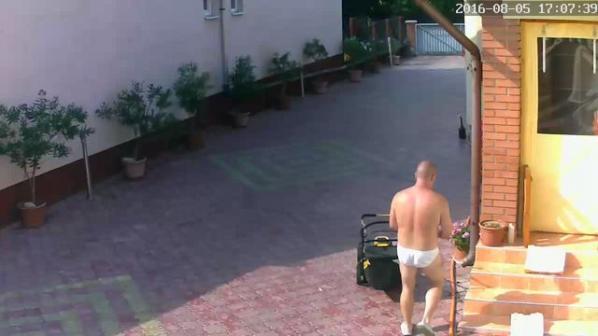
MH: The word ‘Backdoored ’ implies something that’s both disturbing but potentially exciting too, although, with explicit reference to the screenshots of a child or an elderly person in bed, combined with geo-location details – it’s totally creepy. However, those particular images aside, there’s something fascinating with many of the vidcam shots. Bots are set off to capture the image at a single point of finding unsecured domains so people are captured in their domestic settings – at ease in their pants, for example. This serendipitous and incidental timing without a human-decisive moment or any playing to the camera makes these images – albeit voyeuristic – seemingly more representative of the real and something nearer to the truth. So the digital aspect to the dark world of unsecured vidcams brings me intrigue as well as valid concerns over individual rights to privacy.
NT: Yes, although images of people in their homes form only a part of the surveillance images I find; there are wastelands, machinery, bars, building sites, hidden cameras, zombie cameras – forgotten but still broadcasting. They form a kind of covert mapping of contemporary concerns and anxieties worldwide.
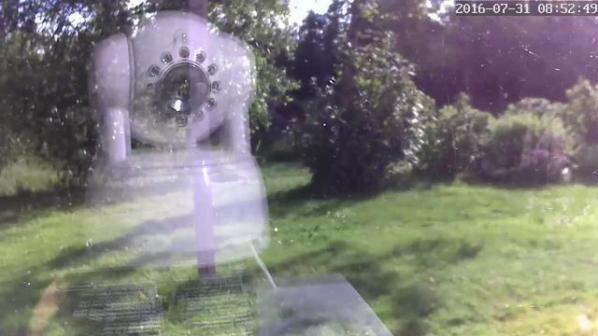
MH: Yes, this is different to public surveillance and government snooping which – for the most part – seems to have been accepted. Similarly to public surveillance though, home vidcams seem an unnecessary reaction to an underlying and excessive state of fear, and the voracity to control; anxieties in these images then are represented through the choice of self-prescribed surveillance.
NT: Yes, it seems like the scenes and objects in these pictures predominantly represent a kind of metaphysical anxiety, or a way to reassure ourselves of object permanence. These are things that we feel we need to monitor constantly in case something bad happens, although it’s not always clear how we would meaningfully intervene. It’s a classic case of a technology creating a need, and a new demand on our attention. Suddenly we have the ability to watch the people and things in our life 24/7, and so not watching can almost feel like a failure to care. Yet at the same time there is a distancing, as we engage with our babies, our elderly parents, our pets, our work colleagues, our possessions – as live video streams rather than through physical, embodied interaction.

MH: Thinking back to earlier this year, Backdoored was a new idea for you. And something that I – and presumably many people – weren’t even aware was happening. At the time, we discussed the premise for this work and shared our concerns of how ethics get outpaced by rapid technological development. How do you reconcile Backdoored seeing that these images bring greater intrusion to those whose privacy they reveal?
NT: This is an important question. These images are already out there for anyone to find, and more significantly millions of these cameras are insecure and vulnerable, yet, as you said, many people are not aware of these facts. Of course I am conscious that by bringing people’s attention to them I am also amplifying the images, so there are ethical and curatorial challenges here. But these images do already exist and I’m using them in a very direct way – drawing attention to privacy and surveillance issues. There’s immediacy to imagery that resonates when a full-length article might not. I think public reports on privacy issues, by organisations like Privacy International & Big Brother Watch (to name just two), are massively important but they are endlessly firefighting this international problem. Who’s to say art can’t have an effect on these issues too?
MH: Raising awareness helps – last week I made a studio visit to an artist who had a Backdoored postcard on his desk, the tape over his webcam was a recent addition since seeing your work at Tate Modern. But, further to public awareness, lawmakers, regulators, manufacturers and commercial watchdogs need to work together to ensure privacy matters. That said, state surveillance is at a insanely invasive level – I’m thinking of GCHQ’s Smurf Suite and the Investigatory Powers Bill (which targets journalists’ privacy on whistleblowers) – vidcam backdoors perhaps seem trivial for a government to attempt to regulate and, perhaps, are even a welcomed accessory to state surveillance. On the issue of state surveillance, you were faced with some rather heavy legal threats – explain.
NT: Ah yes. Backdoored.io at Bank Gallery this year triggered an official complaint from the Hong Kong Commissioner. One of the works featured domestic scenes from Hong Kong – they seem to use a disproportionately high volume of unsecured surveillance cameras in their homes. First I received legal threats from a Chinese newspaper, then Channel 4 news weighed in with a recorded complaint from the Commissioner and demanded that I give them a (pre-recorded) interview in response. They then broadcast a sensationalised news piece, using a heavily cut version of my interview. The news article attacked me for my use of these images, while at the same time deliberately obfuscating the privacy and technology issues and how the images came to exist in the first place. Ironically, a few weeks later, the media was full of reports that the FBI was advising people to put tape over their webcams to protect their privacy!

MH: Ha, fifteen years too late. In terms of the complaint from the Chinese Commissioner for Hong Kong, it seems rather duplicitous that a country with the most pervasive internet censorship to maintain control over it’s public (I understand ProtonMail has a large Chinese user base) would be interested in threatening a UK artist here – what’s the percentage of webcams that are manufactured in China?
NT: No comment 😉
MH: So what’s next for Backdoored and how do you see the future for privacy?
NT: Backdoored highlights this very real and disturbing fact – these images already exist. What does this imply for us now and what does it imply for the future? Backdoored foregrounds privacy and surveillance, although, as an artist, I’m also interested in these images as material: the social and cultural messages encoded within them; their robotic origin; and the complex responses they evoke in the viewer. These images are signifiers for some of the epic power struggles* currently taking place at the cutting edge of technological development. This surrendering of our privacy seems like a one-way ticket; once we’ve lost that could we ever get it back? What we want for our futures must be dealt with now.
* In recent weeks we have seen just how easily these unsecured cameras can be ‘weaponised’ by hackers. For example, millions of these cameras have now been infected with the Mirai and other viruses. This allows them to be conscripted into giant ‘botnet’ armies which can be used to attack or censor other parts of the Internet.
Nye Thompson’s Backdoored will be in TERMINAL, a group exhibition opening at Avalanche in December. For 2017 she is planning a UK touring show, and also a panel discussion on issues raised by the project. Event details can be found on the Backdoored website.
Contact:
@nyethompson
www.Backdoored.io
Several months ago I stayed in an offbeat Amsterdam hotel that brewed its own beer but refused to accept cash for it. Instead, they forced me to use the Visa payment card network to get my UK bank to transfer €4 to their Dutch bank via the elaborate international correspondent banking system.
I was there with civil liberties campaigner Ben Hayes. We were irritated by the anti-cash policy, something the hotel staff took for annoyance at the international payments charges we’d face. That wasn’t it, though. Our concern was intuitive about a potential future world in which we’d have to report our every economic move to a bank and the effect this could have on marginalised people.
‘Cashless society’ is a euphemism for the “ask-your-banks-for-permission-to-pay society”. Rather than an exchange occurring directly between the hotel and me, it takes the form of a “have your people talk to my people” affair. Various intermediaries message one another to arrange an exchange between our respective banks. That may be a convenient option, but in a cashless society, it would no longer be an option at all. You’d have no choice but to conform to the intermediaries’ automated bureaucracy, giving them a lot of power and a lot of data about the microtexture of your economic life.
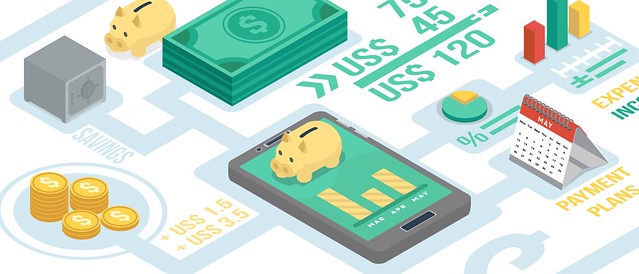
Our concerns are unfashionable. Without any explicit declaration, the War on Cash has begun. Proponents of digital payment systems are riding upon technology-friendly times to proclaim the imminent Death of Cash. Sweden leads in the drive to reach this state, but the UK is edging that way too. London buses stopped accepting cash in 2014 but do accept MasterCard and Visa contactless payment cards.
Every cash transaction you make is one that payments intermediary like Visa takes no fee from, so it has an interest in making cash appear redundant, deviant and criminal. That’s why, in 2016, Visa Europe launched its “Cashfree and Proud” campaign to inform cardholders that “they can make a Visa contactless payment with confidence and feel liberated from the need to carry cash.”
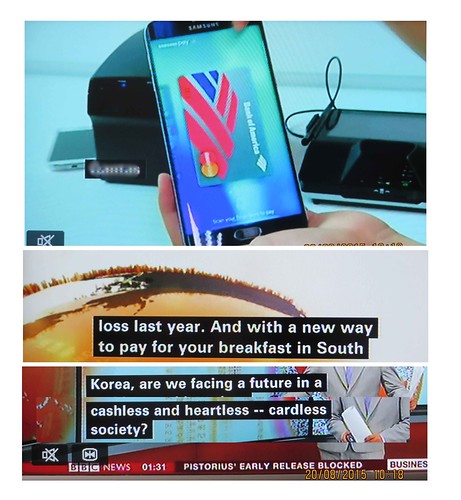
The company’s press release declared the campaign “the latest step of Visa UK’s long-term strategy to make cash ‘peculiar’ by 2020.”
There you have it. An orchestrated strategy to make us feel weird about cash. Propaganda is a key weapon of war, and all sides present themselves as liberators. Visa comes across like a paternalistic commander when assuring us that we – like a baby taking first steps – will feel a sense of achievement at liberating ourselves from the burden of cash dependence. Visa technology offers freedom without dependence or dangers.
Other propagandists join Visa. In 2014 Penny for London arrived, an apparently altruistic group set up by the Mayor’s Fund for London and Barclaycard, using charity as a hook to switch people to contactless cards on the London Underground. PayPal plastered cities with billboards claiming that “new money doesn’t need a wallet”, and a video proclaiming: “New money isn’t paper, it’s progress”. Astroturfing campaigns like No Cash Day are backed by American Express, highlighting such anti-cash themes as the environmental impact of banknotes. Other tactics include pointing out that criminals use cash, that it fuels the shadow economy, that it’s unsafe, and facilitates tax evasion.
These arguments have notable shortcomings. Criminals use many things we keep – like cars – and fighting crime doesn’t prioritise maintaining other social goods like civil liberties. The ‘shadow economy’ is a derogatory term used by elites to describe the economic activities of people they neither understand nor care about. As for safety, having your wallet cash stolen pales compared to having your savings obliterated in a digital account hack. And if you care about tax justice, start with the mass corporate tax avoidance facilitated by the formal banking sector.
However, the peculiar feature of this war is that only one side is fighting. Very few media champions defend cash. It is like a taken-for-granted public utility, whereas digital payment platforms are run by private companies with an incentive to flood the media with their key messages. When they fight this war, their target is our cultural belief in cash and the belief that its provision should be a public right.
The UK government does not plan to maintain that right and is siding with the payments industry. Their position is summed up by economist Kenneth Rogoff in his new book The Curse of Cash. He argues that, apart from facilitating crime and tax evasion, cash hampers central banks from setting negative interest rates. In the absence of cash, everyone must keep their money in the form of digital bank deposits. During recessions, central banks could then use the banking system to deliberately corrode people’s deposits via negative charges, ‘inspiring’ them to spend rather than hoard.
The emergent consensus among economic and political elites is that this is the direction to go in, but to manufacture consent for this requires a drip-drip erosion of public resistance. Hearts and minds must be shown that the change represents inevitable and desirable progress.
Anyone defending cash in this context will be labelled as an anti-progress, reactionary, and nostalgic Luddite. That’s why we must not defend cash. Rather, we should focus on pointing out that the Death of Cash means the Rise of Something Else. We are fighting a broader battle to maintain alternatives to the growing digital panopticon that is emerging all around us.
To understand this conflict, we must step back. A monetary transaction involves exchanging specific goods or services for tokens giving access to general goods and services from others. The pub landlord hands me a beer at night if I transfer tokens that allow him to get cigarettes from a shopkeeper in the morning.
There are two ways to implement this, though.
The first is to give the tokens a physical form. In this scenario, ‘getting rich’ means accumulating those physical things and ‘making a payment’ means handing them over to someone else. They are bearer instruments, which means nobody keeps a record of who owns them. Rather, whoever holds them owns them. This is your wallet with notes in it. This is cash.

Alternatively, you can use a ledger. Someone sets up a database with spaces allotted to different people. This is then used to keep a record of who has tokens. These tokens have no physical form but are written into existence. They are ‘data objects’ and are ‘moved around’ by editing the record. The keeper of the ledger thus maintains an account of what money is attributable to you, ‘keeping score’ of it for you. In this system, ‘getting rich’ means accumulating a high score on your account. ‘Making a payment’ involves identifying yourself to the keeper of the ledger via a communications system and requesting that they edit your account and the account of whoever you are paying.
Does this sound familiar? It is your bank account.
Old banks used actual books to maintain these account ledgers, but modern banks use digital databases housed in huge data centres. You then interact with them via your internet banking portal, your phone app, or by going into a branch. This is not a minor part of the monetary system. Over 90 per cent of the UK’s money supply exists nowhere but on bank databases.
It is upon this underlying infrastructure that payment card companies like Visa build their operations. They deal with situations in which someone with one bank account finds themselves in a shop owned by someone else with another bank account. Rather than the pub landlord giving me his bank details for a manual transfer, my card sends messages through Visa’s network to automatically arrange the editing of our respective accounts.
Many fintech – financial technology – startups specialise in finding ways to augment, gamify or streamline elements of this underlying infrastructure. Thus, I might use a mobile phone fingerprint reader to authorise changes to the bank databases. – ‘disruption’ merely involves putting slicker clothes on the same old emperor.
The use of high-speed communications systems to rearrange binary code information about who has what money might be new, but ledger money is as old as any bearer form. The Rai stones of the island of Yap were huge and largely unmovable stones that, while seeming like physical tokens, were a form of ledger money. Rather than being physically moved – like cash would – a record of who owned the stones was kept in people’s heads, stored in their communal memory. If the owners wished to ‘transfer’ a stone to another, they ‘edited the ledger’ of who possessed the tokens by merely informing the community. Why physically roll the stone if you can get everyone to remember that it has ‘moved’ to somebody else? The main reason that we struggle to recognise this as a form of cashlessness is that the ledger is invisible and informal.

Cashless society, though, is presented as futuristic progress rather than past history, a fashionable motif of futurists, entrepreneurs and innovation gurus. Nevertheless, while there are real trends in behaviour and tastes to be spotted in society, there are also trends in behaviour and taste among trend-spotters. They are paid to fixate upon change and have the incentive to hype minor shifts into ‘end of history’ deaths, births and revolutions. Innovation communities are always at risk of losing touch within an echo chamber of buzzwords, amplifying one another’s speculations into concrete future certainties. These prediction factories always produce the same two unprovable sentences: “In the future we will… ” and “In the future, we will no longer… “. Thus, in the future, we will all use digital payments. In the future, we will no longer use cash.
This is the utopia presented by the growing digital payments industry, which wishes to turn the perpetual mirage of a cashless society into a self-fulfilling prophecy. Indeed, a key trick to promoting your interests is to speak of them as obvious inevitabilities already underway. It makes others feel silly for not recognising the apparently obvious change.
To create a trend, you should also present it as something others demand. A sentence like “All over the world, people are switching to digital payments” is not there to describe what other people want. It’s there to tell you what you should want by making you feel in sync with them. Here’s fintech investor Rich Ricci invoking the spectre of millennials, with their strange moral power to define the future. They are repulsed by the revolting physicality of cash and feel all warm towards fintech gadgets. But these are not, on the whole, real people. They are a weapon in the arsenal of marketing departments to make older people feel prehistoric. We’re not pushing this. We’re just responding to what the new generation demands.
And so we get Visa’s Cashfree and Proud campaign. If people really were ashamed of cash, they wouldn’t need ads to tell them. Visa must engineer that shame to teach you that what you want is the same as what they want. And if you don’t want it, just remember that a cashless society is inevitable. Don’t get left behind.
But this system will leave many behind. It is hardwired to include only those with access to a bank account, and bank accounts are hosted by profit-seeking corporations that operate at scale. They have no time for your individual idiosyncrasies. They cannot make a profit off anyone who cannot easily be categorised and modelled on a spreadsheet.
So, good luck if you find yourself with only sporadic appearances in the official books of state, if you are a rural migrant without a recorded birthdate, identifiable parents, or an ID number. Sorry if you lack markers of stability if you are a rogue traveller without a permanent address, phone number or email. Apologies if you have no status symbols or are an informal economy hustler with no assets and low, inconsistent income. Condolences if you have no official stamps of approval from gatekeeper bodies, like university certificates or records of employment at a formal company. Goodbye if you have a poor record of engagements with recognised institutions, like a criminal record or a record of missed payments.
This is no small problem. The World Bank estimates that there are two billion adults without bank accounts, and even those who do have them still often rely upon the informal flexibility of cash for everyday transactions. These are people bearing indelible markers of being incompatible with formal institutional space. They are often too unprofitable for banks to justify the expense of setting them up with accounts. This is the shadow economy, invisible to our systems.
The shadow economy is not just ‘poor’ people. It’s potentially anybody who hasn’t internalised the correct state-corporate narrative of normality and anyone seeking a lifestyle outside of the mainstream. The future presented by self-styled innovation gurus has no scope for flexible, unpredictable or invisible people. They represent analogue backwardness. The future is a world of endless consumer choice built upon an inescapable digital uniformity of automated rules, a matrix outside which you can neither exist nor think.
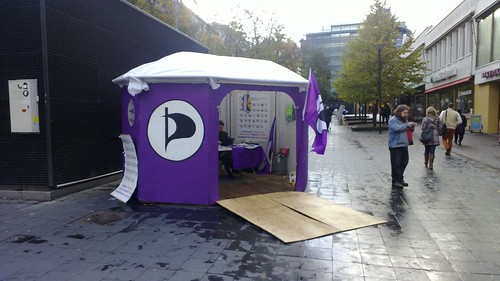
Back in Amsterdam, I hang out with Ancilla van de Leest of the Netherlands Pirate Party. She only visits establishments that accept cash, true to her political belief in individual privacy from prying eyes.
However, it would be wrong to assume that Ancilla’s primary concern involves surveillance by a Big Brother-style bogeyman. It’s true that your spending patterns reveal much about how you actually live, and the privacy implications of having these recorded in searchable database format are only starting to be uncovered. We know that targeted individual surveillance of payments occurs by the likes of the FBI and NSA, but routinised mass surveillance could become a norm. Imagine automatic flagging systems triggered by anyone engaging in a combination of transactions deemed subversive. Tax authorities are bound to be building systems to flag discrepancies between your spending patterns and your declared profits.
It’s also true that at London fintech gatherings, the exciting visions of a cashless society occasionally come with a disclaimer that we should think about the power granted to those who control the system. Not only can payment intermediaries see every time you buy access to a porn site, but they have the ability to censor your transactions, like Visa, PayPal and MasterCard attempting to choke WikiLeaksby refusing to process people’s donations. We could imagine some harsh sci-fi scenario in which a theocratic regime issues decrees to payment processors to block anyone buying books deemed sexually deviant. Such decrees could be automatically enforced via code, with subroutines remotely triggering smart locks to place the offending miscreant under house arrest while automatically deducting a fine from their account.
Such automated dystopias should ideally be avoided, so a dose of paranoia about digital payment systems is a healthy impulse, even if it might be unwarranted.
But that isn’t really the point. What’s more important to Ancilla and me is the looming sense of an external watcher that ‘assists’, ‘guides’ or ‘helps’ you in your life, tracking and logging your moves to influence you. The watcher is not a single entity. It’s a collective array being incrementally built in stages by startups and companies worldwide as we speak. We feel it seeping deeper into our lives, a mesh of connected devices, cookies and sensors. Whether we visualise it as the benevolent eyes of a parent or the menacing eyes of a tyrant doesn’t matter. The point is that the eyes have the potential to monitor you all the time.
The proclaimed Death of Cash is thus an episode in the broader drama that is the Death of Privacy, the death of the breathing room, and the death of informal, non-measured, unaccounted-for behaviour. Every action you take must forever be attached to your digital persona, dragging a data trail extending back to the day you were born. We face creating an entire generation of people who do not know what it feels like not to be monitored.
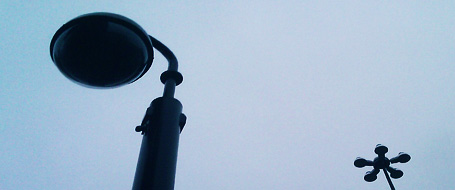
For many economists, the War on Cash will be resolved by their favourite mystical demigod, the market. This guiding force prevails when utility-maximising producers and consumers make rational choices with perfect information about their options and total freedom to choose whether or not to exercise them. If digital payment transaction costs are lower, then the cash will rightly die.
The pristine realm of market theory is unfit to assess the dynamics of this situation. Our sense of what constitutes a legitimate choice does not form in a vacuum. We are born into social power structures that tell us what normality is and shame us for not choosing ‘correctly’. You might be a rebel who challenges prevailing cultural norms, but those norms are conditioned by those with the greatest financial and media clout. At this moment, the blaring of propaganda extolling the short-term conveniences of digital payment is dulling our critical impulses to rearrange our cultural DNA. Who is thinking about the longer-term implications of building our lives around these systems and thereby locking ourselves into dependence upon them?
Unlike a battle fought using violence, hegemony is the assertion of power by getting people to believe in it, to see it as inevitable, unassailable and normal. Visa’s four-year plan is one such exercise, and once we’ve internalised it, we’ll choose to build their power. We’ll feel strangely comforted by the MasterCard billboard endorsed by the Mayor of London. We’ll find ourselves downloading ApplePay like a dazed child accepting a gift.
So, let’s prepare for the War on Cash. Remember, this is not about romanticising the £10 notes with the Queen. This is about maintaining alternatives to the stifling hygiene of the digital panopticon being constructed to serve the needs of profit-maximising, cost-minimising, customer-monitoring, control-seeking, and behaviour-predicting commercial bureaucrats. And fear not, the Germans are onside, along with the criminals, the homeless, the street-side buskers and an army of people whose lives will never get a five-star rating on a mainstream reputation scoring system. We will forge alliances with purveyors of non-bank alternative currency systems and maintain the option to use our payment cards. Because what we fight for is precisely that. The option.